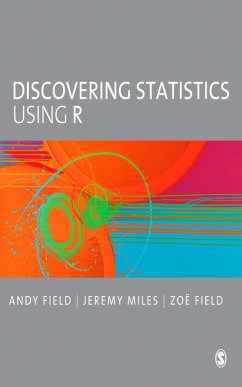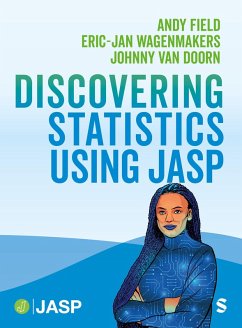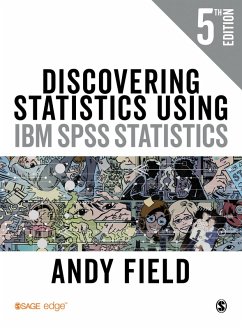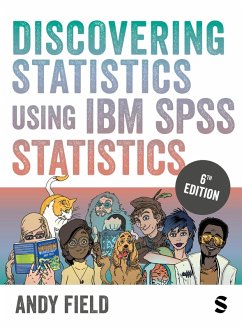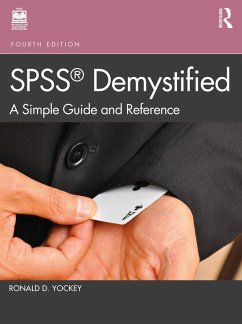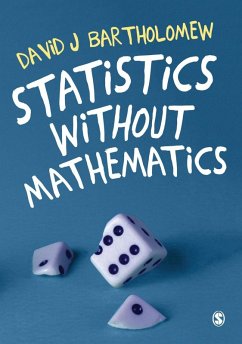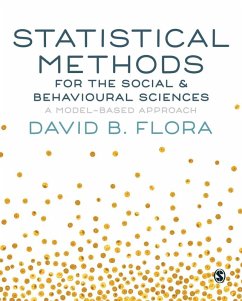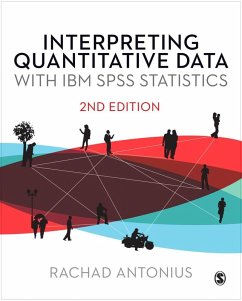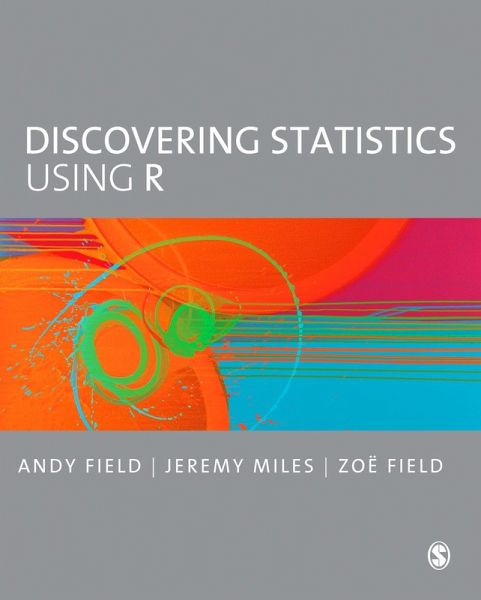
Discovering Statistics Using R (eBook, PDF)
Versandkostenfrei!
Sofort per Download lieferbar
73,95 €
inkl. MwSt.
Weitere Ausgaben:

PAYBACK Punkte
37 °P sammeln!
Keeping the uniquely humorous and self-deprecating style that has made students across the world fall in love with Andy Field's books, Discovering Statistics Using R takes students on a journey of statistical discovery using R, a free, flexible and dynamically changing software tool for data analysis that is becoming increasingly popular across the social and behavioural sciences throughout the world.The journey begins by explaining basic statistical and research concepts before a guided tour of the R software environment. Next you discover the importance of exploring and graphing data, before...
Keeping the uniquely humorous and self-deprecating style that has made students across the world fall in love with Andy Field's books, Discovering Statistics Using R takes students on a journey of statistical discovery using R, a free, flexible and dynamically changing software tool for data analysis that is becoming increasingly popular across the social and behavioural sciences throughout the world.
The journey begins by explaining basic statistical and research concepts before a guided tour of the R software environment. Next you discover the importance of exploring and graphing data, before moving onto statistical tests that are the foundations of the rest of the book (for example correlation and regression). You will then stride confidently into intermediate level analyses such as ANOVA, before ending your journey with advanced techniques such as MANOVA and multilevel models. Although there is enough theory to help you gain the necessary conceptual understanding of what you're doing, the emphasis is on applying what you learn to playful and real-world examples that should make the experience more fun than you might expect.
Like its sister textbooks, Discovering Statistics Using R is written in an irreverent style and follows the same ground-breaking structure and pedagogical approach. The core material is augmented by a cast of characters to help the reader on their way, together with hundreds of examples, self-assessment tests to consolidate knowledge, and additional website material for those wanting to learn more.
Given this book's accessibility, fun spirit, and use of bizarre real-world research it should be essential for anyone wanting to learn about statistics using the freely-available R software.
The journey begins by explaining basic statistical and research concepts before a guided tour of the R software environment. Next you discover the importance of exploring and graphing data, before moving onto statistical tests that are the foundations of the rest of the book (for example correlation and regression). You will then stride confidently into intermediate level analyses such as ANOVA, before ending your journey with advanced techniques such as MANOVA and multilevel models. Although there is enough theory to help you gain the necessary conceptual understanding of what you're doing, the emphasis is on applying what you learn to playful and real-world examples that should make the experience more fun than you might expect.
Like its sister textbooks, Discovering Statistics Using R is written in an irreverent style and follows the same ground-breaking structure and pedagogical approach. The core material is augmented by a cast of characters to help the reader on their way, together with hundreds of examples, self-assessment tests to consolidate knowledge, and additional website material for those wanting to learn more.
Given this book's accessibility, fun spirit, and use of bizarre real-world research it should be essential for anyone wanting to learn about statistics using the freely-available R software.
Dieser Download kann aus rechtlichen Gründen nur mit Rechnungsadresse in A, D ausgeliefert werden.




